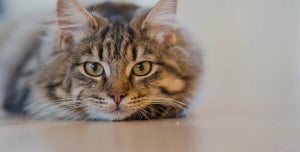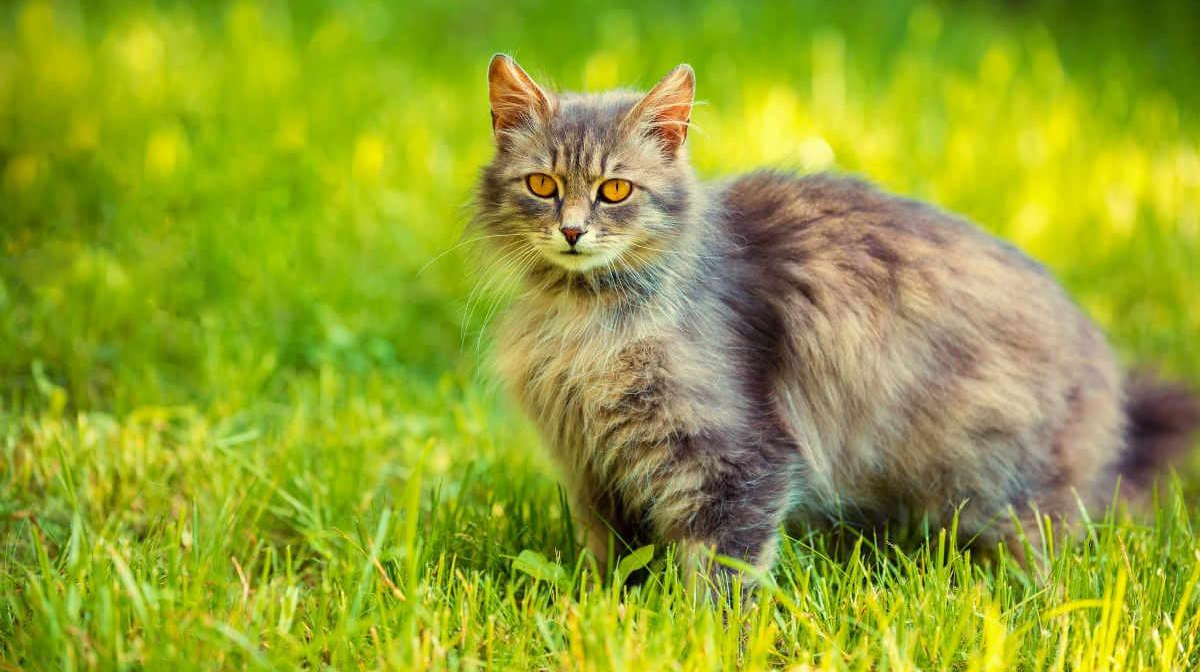
Why do cat's purr?
The sound of a cat purring is a wonderful noise, but why do cats purr? It’s a noise few other animals make, with even some close relatives of the domestic cat unable to do it. Owners often take purring to be assurance of their cat’s contentment; however, to assume this underestimates the nuances these noises can communicate. In the same way a human might laugh or cry for a range of reasons, cats purr for different reasons too.
In this post, James Wellbeloved helps owners to understand their cats better, by exploring this feline language and answering the question ‘why do cats purr?’
HOW DO CATS PURR?
Small cats can purr because of the structure of their vocal chords. They can move the muscles around their vocal chords to create vibrations. As cats breathe in and out, air hits these vibrating muscles and creates the purring noise.
Larger cats, such as lions or tigers, cannot purr as their vocal chords are structured to roar instead. Similarly, smaller cats cannot roar as their vocal chords are structured for purring. The difference is a small bone in the vocal chords, which is flexible in roaring cats, but inflexible in purring ones.
CATS PURR WHEN THEY ARE HAPPY
The interpretation we love the most, cats do purr when they are happy. It is an intimate sound to cats; being so low in frequency, purring is designed to be heard only by those close to them. When they cuddle up in your lap and purr, it is often your furry friend’s way of telling you they are content.
CATS PURR WHEN THEY ARE HUNGRY
Cats purr when they want food, however research has shown this sound is different and can be distinguished by owners. When a cat is hungry, they combine their purr with an unpleasant cry, creating a unique vocalisation that is intended to encourage their owners to feed them. This purring sounds more urgent and more forceful than if your cat is content. Most owners can tell the difference once they know their pet well enough.
CATS PURR TO HEAL THEMSELVES
Although they might not really have nine lives, cats do seem to have superpower-like healing ability in their purrs. It is perhaps the most surprising benefit of purring, but some research has indicated it can heal your pet. The restorative properties of purring are linked to the bodily vibrations the sound creates. These vibrations stimulate bone regeneration, helping to heal bones, build muscle, repair tendons, ease breathing, and reduce swelling.
This is likely one of the reasons that cats purr when they are injured – they are trying to encourage their body to heal faster.
CATS PURR TO BOND WITH THEIR YOUNG
When a mother is near her young, it is common for her to purr and for them to purr back. Like when human parents sing a lullaby to their children, it is theorised that this purring helps the mother to soothe her kittens and strengthen the bond between them.
This is the other reason that cats purr when they are injured. Mother cats use purring to relax their young and so adult cats find the practice soothing. It is similar to how a human might soothe themselves by crying. In fact, cats have even been observed lying next to one another and purring when one is injured – a friend soothing a friend.
So, why do cats purr? As we have seen, this unassuming noise can communicate a broad range of emotions and needs. Whether its that they’re hungry, happy or hurting, your cat is trying to speak to you when they purr. It is an intimate language that we should feel privileged to hear, so next time your cat purrs, appreciate it and listen carefully to them.

Related Articles








